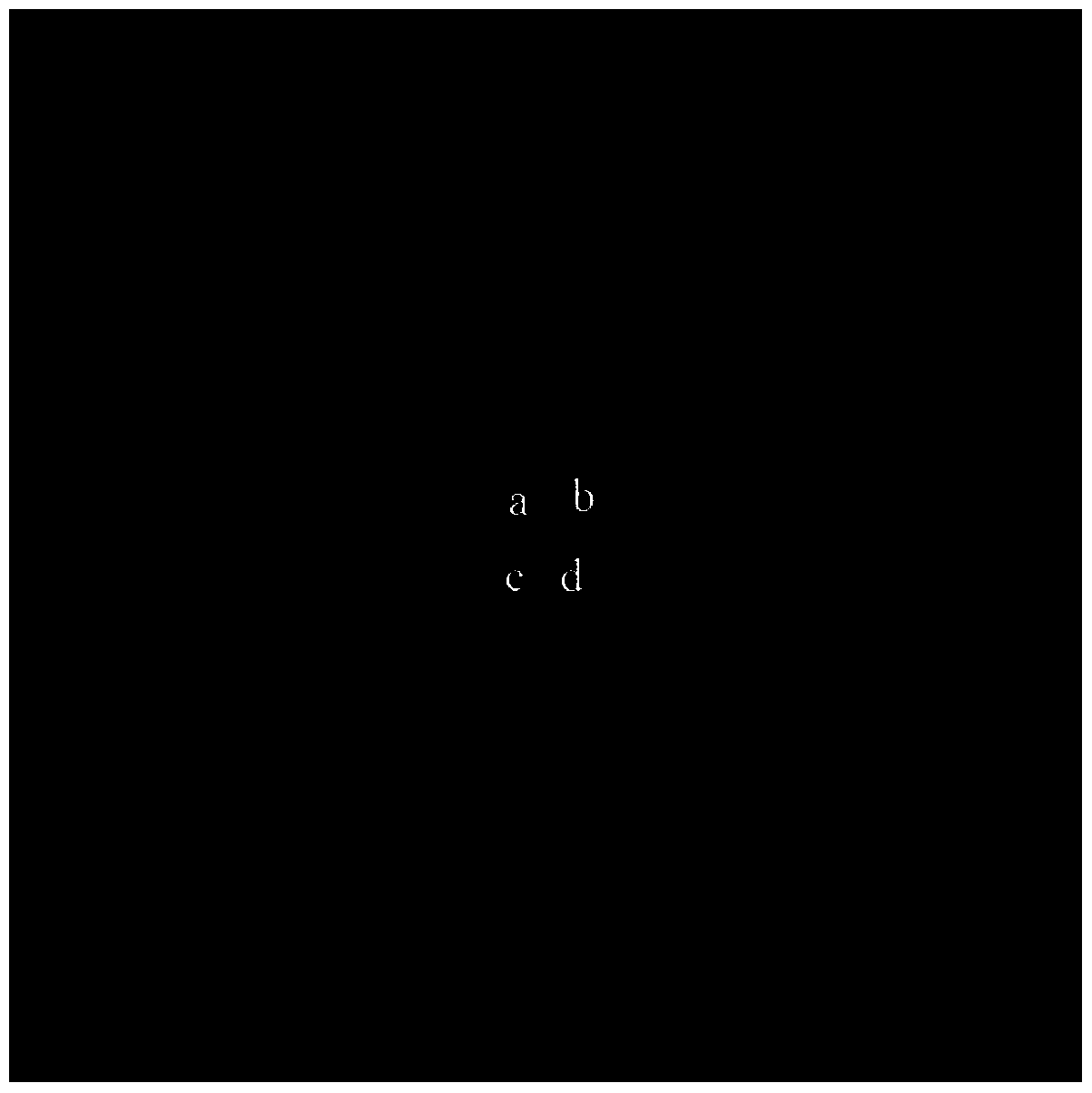Ruthenium(ii) complexes and their preparation methods and their application as cell fluorescent dyes
A technology for fluorescent dyes and complexes, which is applied in the direction of azo dyes, organic dyes, and luminescent materials. It can solve the problems of polypyridine ruthenium complexes and other problems, so that the fluorescent color is not easy to quench, the price is simple and easy to obtain, and the fluorescent color is easy to obtain. The effect of observation
- Summary
- Abstract
- Description
- Claims
- Application Information
AI Technical Summary
Problems solved by technology
Method used
Image
Examples
preparation example Construction
[0040] The synthetic method of above-mentioned formula (D compound comprises following three kinds of preparation methods:
[0041] Method one includes the following steps:
[0042] (1) Mix o-phenanthroline 5,6-dione and alkyne-modified benzaldehyde, dissolve in acetic acid solvent, heat and reflux under the catalysis of ammonium acetate, and adjust the acidity and alkalinity to precipitate the target compound X-RPIP after the reaction.
[0043] (2) X-RPIP prepared in step (1) and Λ-[Ru(bpy) 2 (py) 2 ][o,o'-dibenzoyl-D-tartrate]·12H 2 O or Δ-[Ru(bpy) 2 (py) 2 ][o,o'-dibenzoyl-D-tartrate]·12H 2 O is heated and reacted under the protection of argon. After the reaction is completed, it is cooled to room temperature, diluted with water, filtered to remove insoluble matter, an excessive amount of acid or salt containing Y ions is added to the filtrate, allowed to stand overnight, filtered, and purified by filter cake column chromatography to obtain Compound Λ-[Ru(L) 2 (X-RPI...
Embodiment 1C
[0078] Embodiment 1Cis-[Ru(bpy) 2 (Cl) 2 ]·2H 2 O synthesis
[0079] In a 50mL three-necked flask, add: bipyridyl (1.87g, 12mmol), lithium chloride (2.43g, 57.6mmol), ruthenium trichloride (1.57g, 6mmol), after adding DMF and water, under argon protection Heated at 140°C to reflux for 8h. After stopping the reaction, cool to room temperature, add acetone, and filter with suction to obtain black crystals. After washing the filter cake several times with ice water and acetone, dry it in a vacuum desiccator to obtain purple-black crystals with a yield of 75.5%.
Embodiment 2C
[0080] Embodiment 2Cis-[Ru(bpy) 2 (py) 2 ]·2H 2 O synthesis
[0081] Add in a 150mL three-necked bottle: Cis-[Ru(bpy) 2 (py) 2 ]·2H 2 O (2.01g, 3.85mmol), pyridine, and distilled water were reacted under reflux at 100°C for 4h under the protection of argon. After stopping the reaction, cool to room temperature, distill off all solvents under reduced pressure, dissolve in methanol to obtain a red solution, then add ether, filter with suction, wash the filter cake with ether several times, and dry it in a vacuum desiccator to obtain red crystals. Yield 89.5%.
PUM
 Login to View More
Login to View More Abstract
Description
Claims
Application Information
 Login to View More
Login to View More - R&D
- Intellectual Property
- Life Sciences
- Materials
- Tech Scout
- Unparalleled Data Quality
- Higher Quality Content
- 60% Fewer Hallucinations
Browse by: Latest US Patents, China's latest patents, Technical Efficacy Thesaurus, Application Domain, Technology Topic, Popular Technical Reports.
© 2025 PatSnap. All rights reserved.Legal|Privacy policy|Modern Slavery Act Transparency Statement|Sitemap|About US| Contact US: help@patsnap.com



